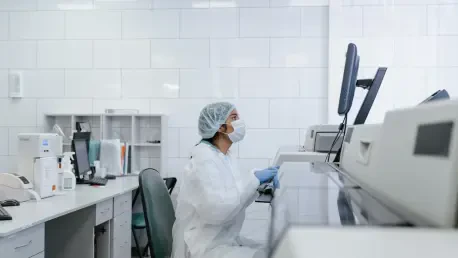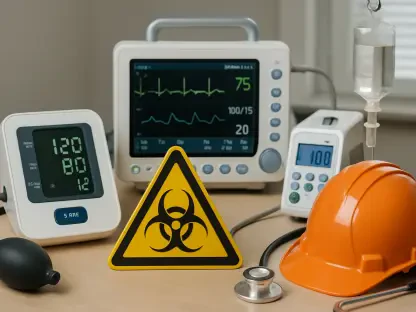In a transformative move for healthcare in North Wales, a substantial £4.4 million investment has been announced to overhaul diagnostic capabilities across key hospitals, addressing long-standing challenges in patient care and staff efficiency. This funding, aimed at modernizing critical medical equipment, targets facilities such as Colwyn Bay Hospital, Ysbyty Glan Clwyd, Wrexham Maelor Hospital, and Ysbyty Gwynedd. The initiative promises to replace outdated imaging systems with cutting-edge technology, a step that could redefine how diagnoses are conducted in the region. By focusing on advanced X-ray machines, fluoroscopy systems, and mammography units, the project seeks to enhance the accuracy of medical assessments while prioritizing patient safety. This development comes as a response to growing demands on healthcare infrastructure, where delays in diagnosis have often hindered timely treatment. The ripple effect of this upgrade is expected to resonate through improved service delivery and better health outcomes for countless individuals.
Modernizing Equipment for Better Care
The core of this £4.4 million initiative lies in equipping North Wales hospitals with state-of-the-art diagnostic tools designed to tackle inefficiencies head-on. At Colwyn Bay Hospital and Ysbyty Glan Clwyd, fully automated X-ray systems are being introduced, offering enhanced positioning for greater precision and patient comfort during scans. Meanwhile, Wrexham Maelor Hospital and Ysbyty Gwynedd are set to benefit from advanced fluoroscopy systems that will streamline complex procedures like biopsies and drainages. Additionally, new mammography units will bolster early detection of breast cancer, a critical factor in improving survival rates. These upgrades are not merely about replacing old machinery; they represent a shift toward safer practices by reducing radiation exposure for patients. For healthcare staff, the ease of use and improved image quality mean faster, more reliable results, enabling radiology departments to handle a higher volume of cases with confidence and accuracy, ultimately transforming the diagnostic landscape.
Impact on Patients and Healthcare Systems
Reflecting on the broader implications, this significant investment marks a turning point for North Wales healthcare, as voiced by both government and health board officials during the announcement. Cabinet Secretary for Health and Social Care Jeremy Miles, alongside Betsi Cadwaladr University Health Board’s deputy executive medical director Jim McGuigan, highlighted how these advancements have streamlined diagnostic workflows. The focus on cutting waiting times through enhanced productivity stands as a testament to a shared vision of modernizing infrastructure. Patients benefit from quicker, safer imaging, while medical teams gain tools to diagnose a wider range of conditions with precision. This initiative underscores a strategic push to address systemic challenges like long waiting lists by leveraging technology. Looking ahead, the success of these upgrades could pave the way for similar investments across other regions, ensuring that healthcare systems remain agile in meeting evolving community needs with innovative solutions and sustained commitment.









